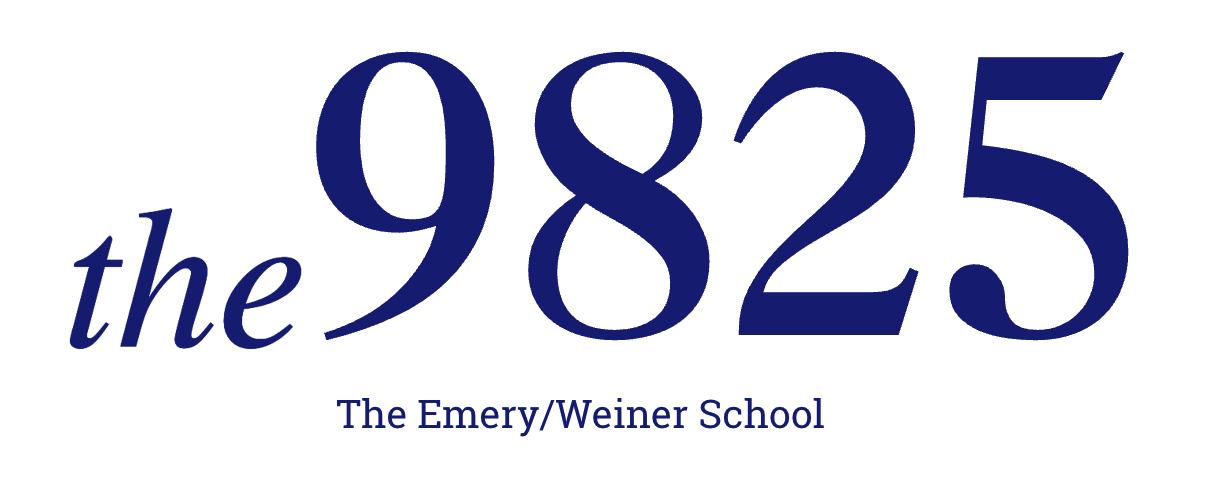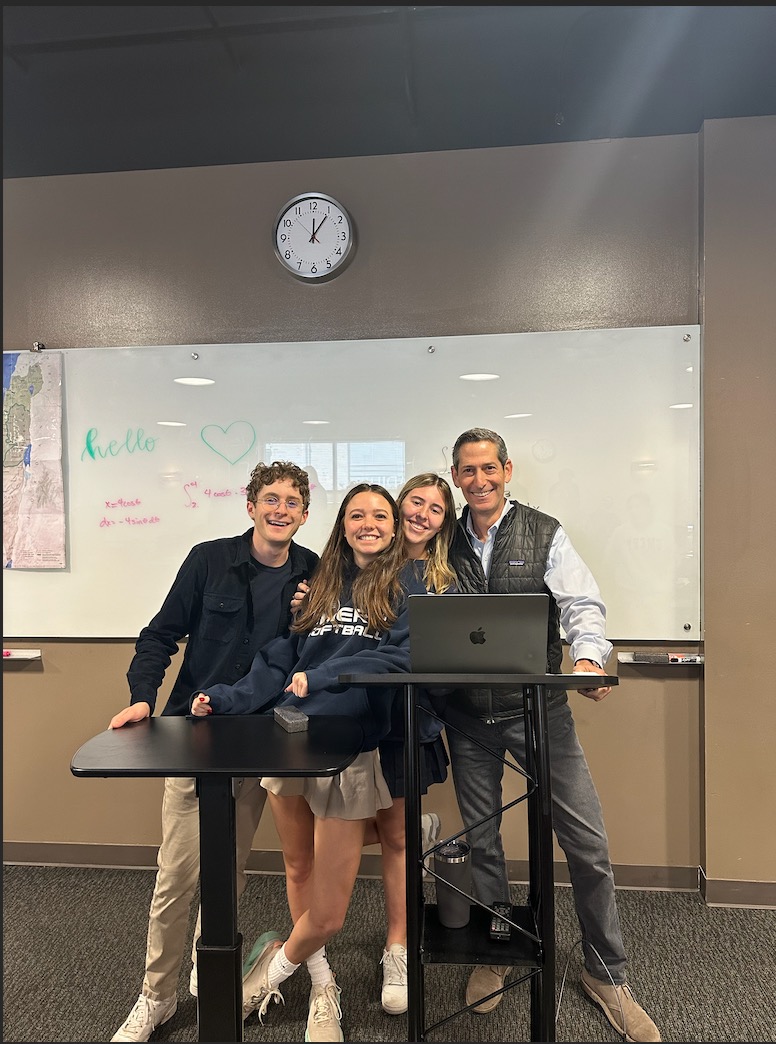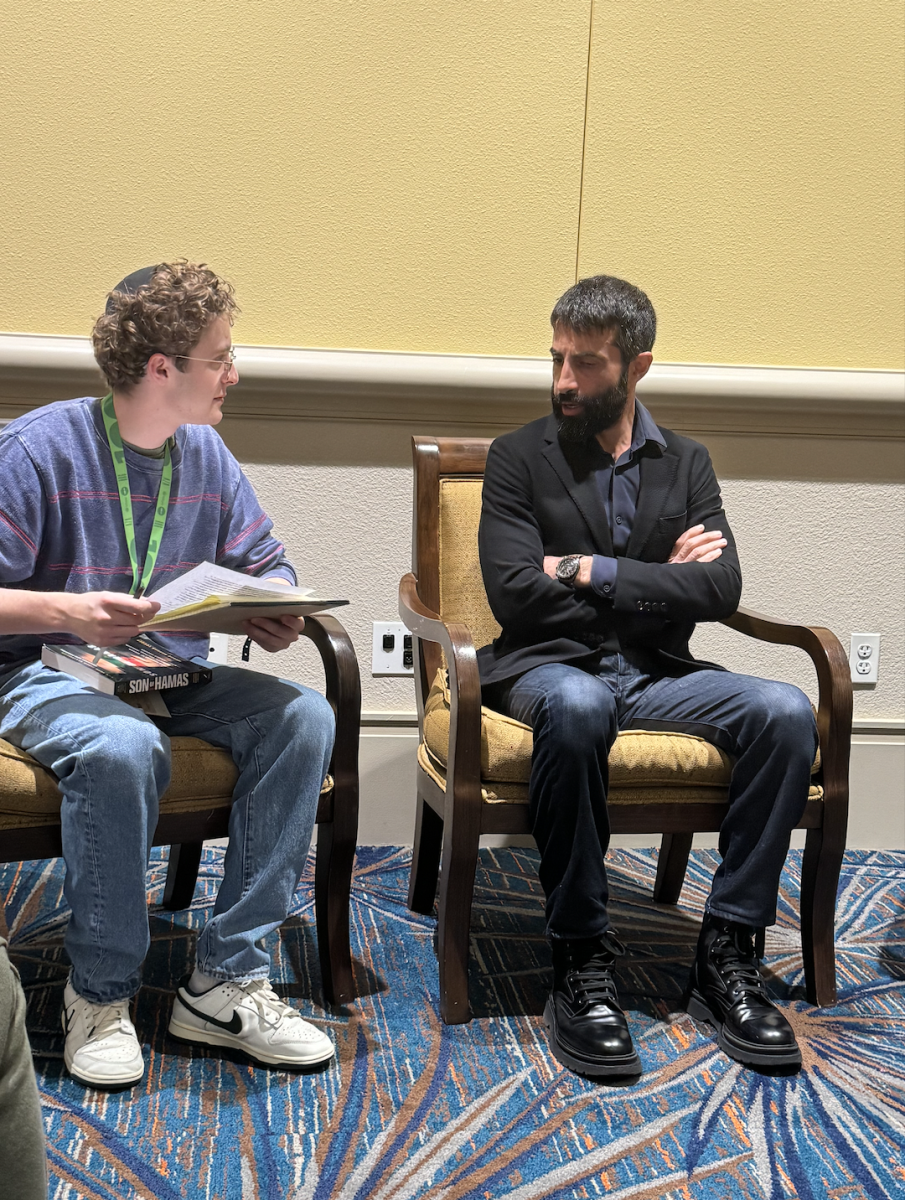During the first semester of the 2023-24 academic year, half of the senior grade spent their G period in one of Emery’s hallmark required courses: Zionism. This course, led by Head of Upper School, Joe Weinstein-Sears, and Head of School, Stuart. Dow, educates senior students on all aspects of Israel’s history and also prepares them as they arrange to exit the Emery Jewish bubble for college and enter a world of inevitable antisemitism.
The course is primarily lecture-based learning — each student receives a thick white binder with a packet that outlines the entire course’s curriculum. This binder holds a series of primary sources, videos, images, diaries, and also PowerPoint slide bullet points. Senior Haley Saikin recalls “Despite some days of the week being lectures, they were incredibly engaging.” Besides, (pro-tip) you didn’t have a choice whether to engage, because Dow is a fan of randomly calling you to answer a question, but that aspect adds to the fun class environment.
The course’s curriculum is outlined by a witty alliteration device: The Seven Sevens. This is, of course, referring to the seven most important dates in the history of Zionism or the founding of the Jewish State that all, perfectly enough, involve the number seven. The years are as follows: 70 C.E., 7th Century, 1897,1917, 1937,1947, 1967 … and what happened on each date, which you will find out when it’s your turn to take the course.
Unfortunately, as someone who took this class in the first semester, there was a need for a pause in the planned curriculum to discuss a new unforeseeable even – Oct. 7. The first day back at school after the horrific acts of terrorism committed toward thousands of Israeli citizens, Dow and Weinstein-Sears invited not just the seniors who were in the Zionism class that semester to debrief the news and be a safe space for questioning, but the entire senior class. Ethan Canfield, a first-semester Zionism student, notes, “I believe that taking the class on October 7th was very beneficial in healing after such a difficult time.”
For me, this moment was paradoxical. I couldn’t help but think back to the week prior where we learned about wars like the Six Day War or the Independence Day War, and how this was just a classic lecture and felt like I was so far removed from the pain that followed them. But, I sat in the same classroom that day learning about the war that had broken out just days prior, and the wounds were still too fresh, the overwhelmingly sad emotion in the room too powerful for this to feel like any other lecture.
One of the most influential aspects of the course’s curriculum is a class-wide peace simulation project where students are put on teams, either Israeli or Palestinian, in order to discuss and debate ways to come to a peace agreement. Canfield mentions that he “really enjoyed the peace agreement project and found it very useful in understanding the complexity of the situation.” The purpose of this project, as defined by the overview was to, “help you begin to understand the complexity of the Israeli-Palestinian Peace Process, to cultivate empathy for opposing viewpoints, and to problem-solve solutions for one of the most challenging political enigmas of the 21st century.” For many, Including myself, immersing myself in this process made me realize how many moving parts are involved in finding peace between Israel and Palestine.
Another token part of this class is the famous “lunch with Mr. Dow.” Where Dow attends bi-weekly lunch meetings with five Zionism students at a time as a way for him to have a sit down conversation with every student by the end of the year. Dow arranges a quick rule before we sit down to converse over Kosher pizza — we don’t have to talk about college unless we want to. And, as a senior, hearing this was a breath of fresh air. So instead, we talk about basically everything else in our lives: what clubs we are involved in, our family, our favorite things to do outside school, etc.
Overall, Zionism is one of the most influential classes I have ever taken. While there are many benefits like college-style learning, fun group projects, and even a nice free meal, I think the most important part of the class is walking away feeling equipped to educate any antisemite I may run into as I exit the Emery bubble. Because of this course, I learned how to respond to someone who says Israel is a racist colonial state or claims Israel has no indigeneity to the land. In fact, part of the final for the course was a verbal exam in which Weinstein-Sears or Dow pretends to be someone we may encounter on the streets, asking us to respond to questions such as, “Is Zionism apartheid?” This type of hands-on, preparatory education is not like anything a student can find at another school, and I feel incredibly grateful for the opportunity to take such a class.







